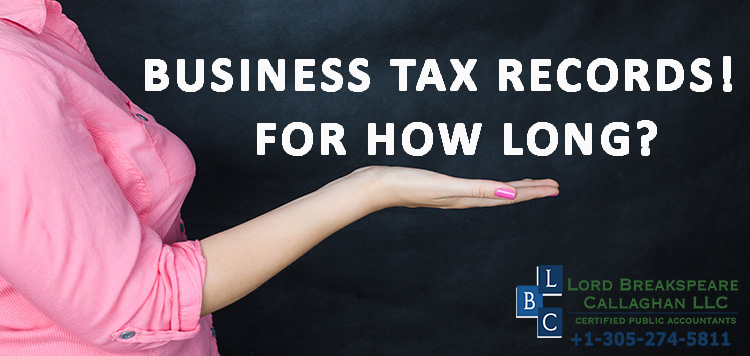LBCPA News 
Click here to go back
-BUSINESS DOCUMENTS

Business Documents To Keep For One Year
- Correspondence with Customers and Vendors
- Duplicate Deposit Slips
- Purchase Orders (other than Purchasing Department copy)
- Receiving Sheets
- Requisitions
- Stenographer's Notebooks
- Stockroom Withdrawal Forms
Business Documents To Keep For Three Years
- Employee Personnel Records (after termination)
- Employment Applications
- Expired Insurance Policies
- General Correspondence
- Internal Audit Reports
- Internal Reports
- Petty Cash Vouchers
- Physical Inventory Tags
- Savings Bond Registration Records of Employees
- Time Cards For Hourly Employees
Business Documents To Keep For Six Years
- Accident Reports, Claims
- Accounts Payable Ledgers and Schedules
- Accounts Receivable Ledgers and Schedules
- Bank Statements and Reconciliations
- Cancelled Checks
- Cancelled Stock and Bond Certificates
- Employment Tax Records
- Expense Analysis and Expense Distribution Schedules
- Expired Contracts, Leases
- Expired Option Records
- Inventories of Products, Materials, Supplies
- Invoices to Customers
- Notes Receivable Ledgers, Schedules
- Payroll Records and Summaries, including payment to pensioners
- Plant Cost Ledgers
- Purchasing Department Copies of Purchase Orders
- Records related to net operating losses (NOL's)
- Sales Records
- Subsidiary Ledgers
- Time Books
- Travel and Entertainment Records
- Vouchers for Payments to Vendors, Employees, etc.
- Voucher Register, Schedules
Business Records To Keep Forever
While federal guidelines do not require you to keep tax records "forever," in many cases there will be other reasons you'll want to retain these documents indefinitely.
- Audit Reports from CPAs/Accountants
- Cancelled Checks for Important Payments (especially tax payments)
- Cash Books, Charts of Accounts
- Contracts, Leases Currently in Effect
- Corporate Documents (incorporation, charter, by-laws, etc.)
- Documents substantiating fixed asset additions
- Deeds
- Depreciation Schedules
- Financial Statements (Year End)
- General and Private Ledgers, Year End Trial Balances
- Insurance Records, Current Accident Reports, Claims, Policies
- Investment Trade Confirmations
- IRS Revenue Agent Reports
- Journals
- Legal Records, Correspondence and Other Important Matters
- Minutes Books of Directors and Stockholders
- Mortgages, Bills of Sale
- Property Appraisals by Outside Appraisers
- Property Records
- Retirement and Pension Records
- Tax Returns and Worksheets
- Trademark and Patent Registrations
If you have any questions regarding Essential Business Accounting, Domestic Taxation, International Taxation, IRS Representation, U.S. Tax Implications of Real Estate Transactions or Financial Statements, please give us a call at 305-274-5811.
Source: Thomson Reuters






